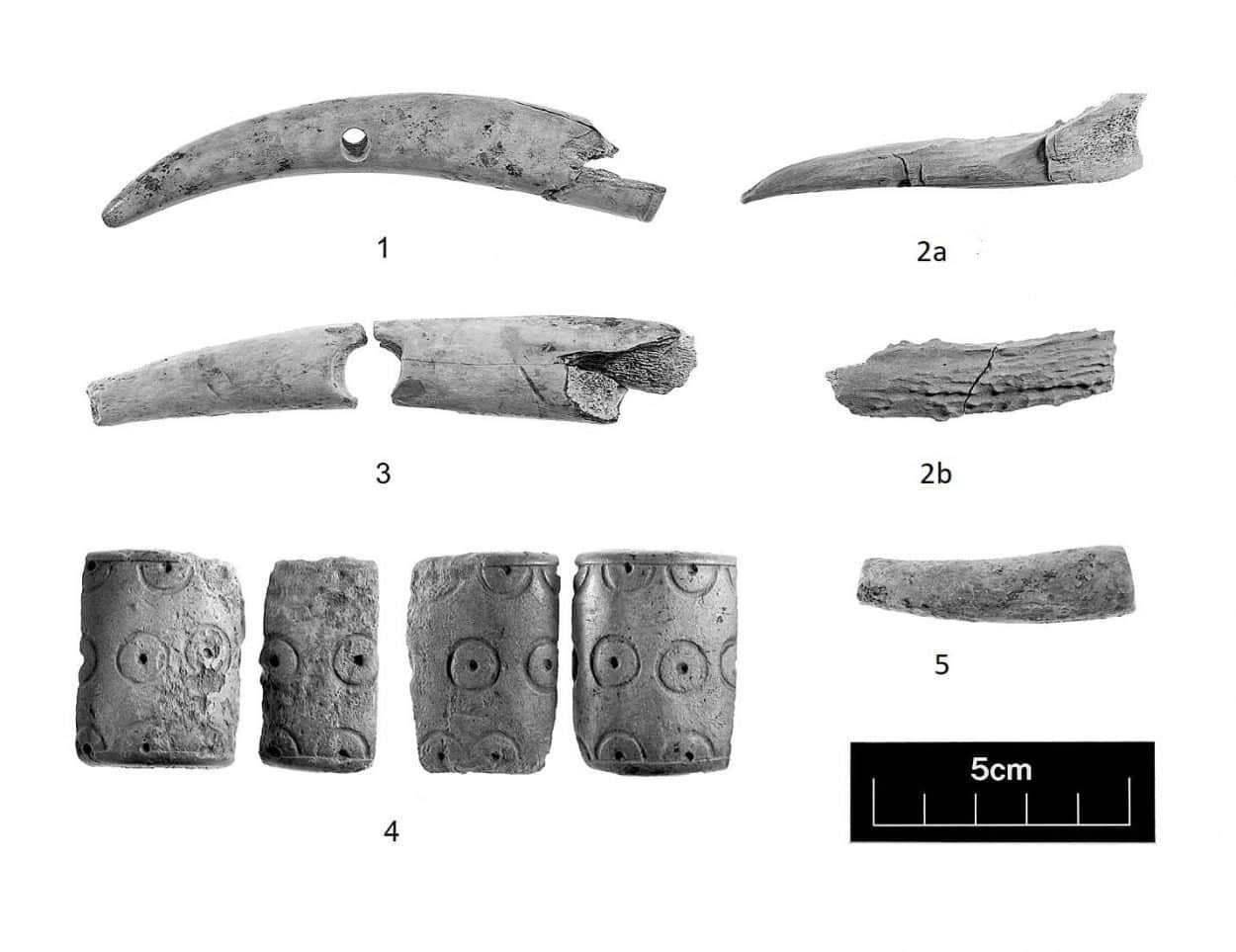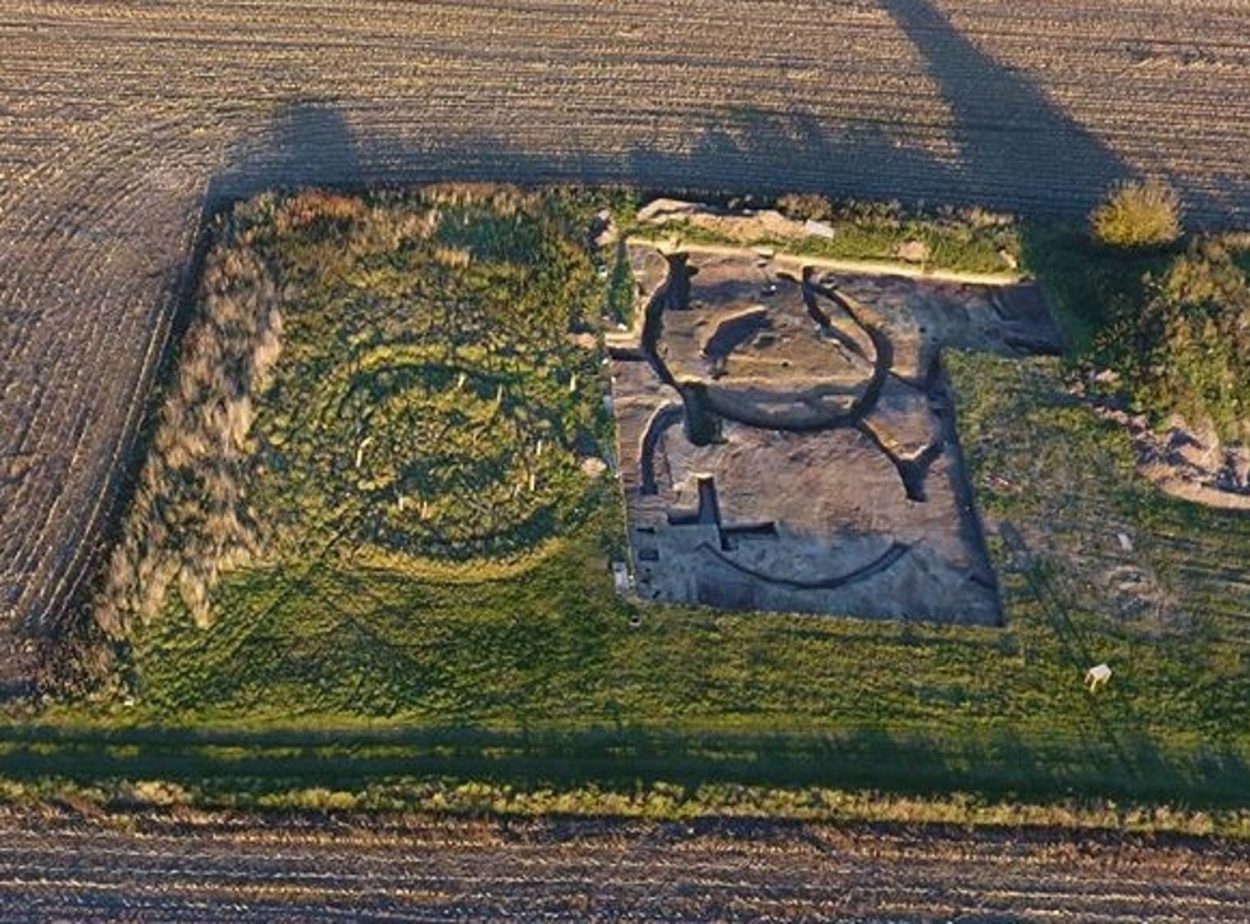Archaeologists from the Poulton Research Project have discovered a large Iron Age settlement in Cheshire, England, where sacrificial dog burials were practised in exchange for prosperity.
The discovery was made in a farmer’s field in Poulton, where archaeologists found a farming settlement consisting of roundhouses made of earth and timber with a thatched cone roof.
Over 5,000 artefacts have been uncovered, including beautifully carved antler items, sacrificial dog burials and fragmented human remains, retrieved from up to ten domestic structures.
The Iron Age inhabitants farmed crops and kept a range of domestic animals, whilst hunting deer that roamed locally. Exotic items such as a finger ring made of jet were imported, whilst vast quantities of pottery used to transport salt attest to a high-status settlement whose inhabitants used bulk amounts of this valuable commodity for food preservation.

One of the roundhouses has foundations of a solid door which held an upper floor level and a screen to shield the interior, in which the researchers believe was the home of an important tribal chief. Over 2,500 find have been recovered from the structure, many of which have been ritually deposited, including a beautifully decorated toggle made from Red Deer antler and a valuable iron farming implement called an adze deposited near the entrance.
Next to these items lay the remains of a dog, with a second dog burial placed in the centre of the building. The intentional sacrifice of such valuable animals would have been a significant offering in exchange for the prosperity of the house.
Dr Kevin Cootes from Liverpool John Moores University said: “Very little was known of high-status Iron Age communities in the north west of England until now. Such settlements have been discovered in southern England, east of the Pennines and in Scotland, but this area was considered a black hole by some archaeologists, that is why it is hugely significant.”
Liverpool John Moores University
Image Credit : Poulton Research Project





